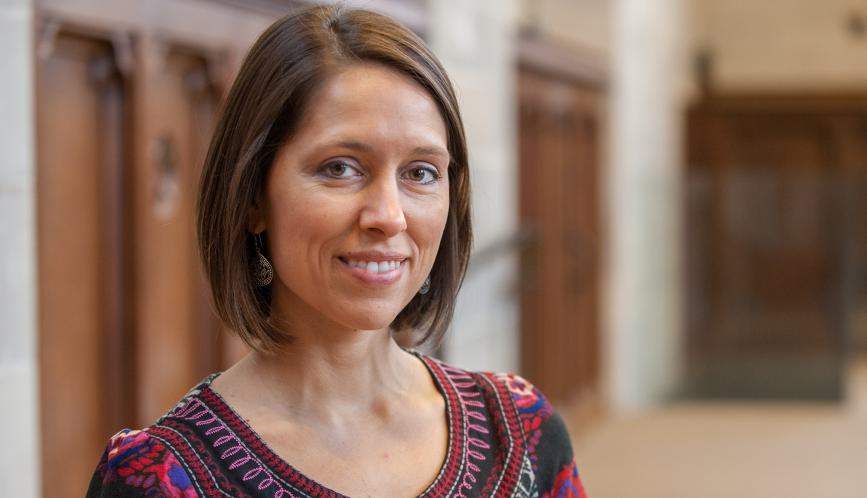HI network member Meghan Azad is an Assistant Professor of Pediatrics and Child Health at the University of Manitoba. With dual expertise in basic science (biochemistry and genetics) and clinical research (epidemiology and pediatrics), Dr. Azad conducts translational research on the developmental origins of chronic disease. Her current research focuses on maternal nutrition, breastfeeding, and breast milk composition in the development and prevention of childhood obesity, asthma, and allergic disease.
Dr. Azad is also a Research Scientist at Children's Hospital Research Institute of Manitoba, and co-leads the Manitoba site of the Canadian Healthy Infant Longitudinal Development (CHILD) Study, a national pregnancy cohort following 3500 children to understand how early life experiences and gene-environment interactions shape lifelong health. In addition, she co-leads the Population Health Pillar for the Manitoba Developmental Origins of Chronic Disease Network (DEVOTION), and the Maternal, Fetal and Child Health Working Group for the new Canadian Urban Environmental Health Research Consortium (CANUE).
Describe your area of study and how it relates to current policy discussions surrounding inequality.
I study the developmental origins of chronic disease. Lately, much of my research has focused on breastfeeding and breast milk composition, and their impact on infant and child health. This relates to current policy discussions surrounding inequality, specifically the new bill on “Fairness for Breastfeeding Mothers” (https://www.congress.gov/bill/116th-congress/house-bill/866).
Breastfeeding is a practice that can help reduce inequality, beginning at birth. For example, we found in the CHILD Cohort Study that exclusive breastfeeding in hospital is associated with longer breastfeeding duration, particularly among women of lower socioeconomic status (ref: https://onlinelibrary.wiley.com/doi/abs/10.1111/birt.12345). This implies that initiatives to support exclusive breastfeeding of newborns in hospital could improve long‐term breastfeeding rates and help reduce health inequities arising in early life.
There are many examples of how breastfeeding can help "level the playing field" by providing relatively more benefits to those who are more disadvantaged. For example, breastfeeding has a larger effect on reducing the risk of type 2 diabetes for those who are predisposed by having a family history of diabetes, compared to those at lower risk. Breastfeeding can also help restore the microbiome of infants born by cesarean section, and we are learning that this may have a long-term health impact. Breastfeeding also greatly reduces the risk of diarrhea and infections, which is especially important in low and middle income countries where these are major causes of infant mortality. So, while breastfeeding is beneficial for all infants, it is especially beneficial for those who are disadvantaged by their family history, birth experience, or sociodemographic position – in this way, breastfeeding can help to "level out" the gap between the advantaged and disadvantaged.
What areas in the study of inequality are most in need of new research?
More research is needed on barriers to breastfeeding and ways to overcome social inequities. We know a lot about the “benefits of breastfeeding,” but despite this, many women do not achieve their own breastfeeding goals. We need to understand the barriers, how they differ in disadvantaged women, families and populations, and how supports can be targeted to these marginalized groups.
What advice do you have for emerging scholars in your field?
Work in multidisciplinary teams and include parents and families in the research process. This is important because breastfeeding has so many dimensions – from biology and physiology to psychology and sociology. We cannot work in isolation focusing on one aspect and hope to understand the full benefits and complexities of breastfeeding. This topic needs to be explored holistically, from multiple standpoints and methodologies, and this requires multidisciplinary research teams. It is also important to involve mothers and families in the research process; including those who represent marginalized populations who can help assess research outcomes that are contextually meaningful.



